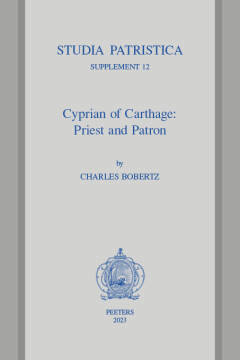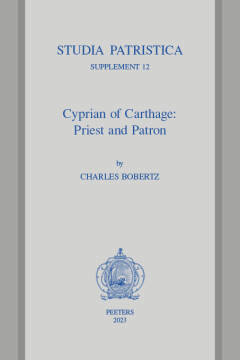
- Afhalen na 1 uur in een winkel met voorraad
- Gratis thuislevering in België vanaf € 30
- Ruim aanbod met 7 miljoen producten
- Afhalen na 1 uur in een winkel met voorraad
- Gratis thuislevering in België vanaf € 30
- Ruim aanbod met 7 miljoen producten
Zoeken
Omschrijving
Cyprian of Carthage: Priest and Patron places the election of Cyprian and his actions as bishop squarely within the social and political expectations surrounding the giving and receiving of patronage in third-century Roman Africa. Beginning with a description of patronage and patron-client relationships available to us from inscriptional and literary sources, the study moves to better understand the social context surrounding the emergence of episcopal authority at a crucial stage in the emergence of the institutional Christian church. Cyprian's understanding of the singular authority of the bishop, that the bishop is the Church, developed within the ancient social expectations of patrons and clients. And it is this understanding that chartered the course for what became the episcopal Church of the fourth and fifth century Roman Empire. It is also an understanding that continues to have great influence on the development of models of ecclesial authority and governance right up to the present day.
Specificaties
Betrokkenen
- Auteur(s):
- Uitgeverij:
Inhoud
- Aantal bladzijden:
- 172
- Taal:
- Engels
- Reeks:
- Reeksnummer:
- nr. 12
Eigenschappen
- Productcode (EAN):
- 9789042949126
- Verschijningsdatum:
- 20/12/2023
- Uitvoering:
- Paperback
- Formaat:
- Trade paperback (VS)
- Afmetingen:
- 16 cm x 24 cm
- Gewicht:
- 1714 g

Alleen bij Standaard Boekhandel
+ 126 punten op je klantenkaart van Standaard Boekhandel
Beoordelingen
We publiceren alleen reviews die voldoen aan de voorwaarden voor reviews. Bekijk onze voorwaarden voor reviews.








